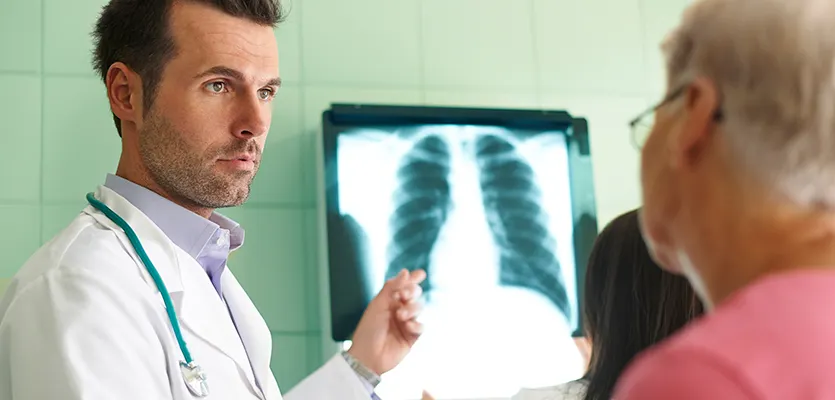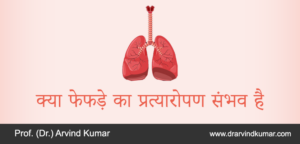A lung transplant is a major procedure and one that medical professionals avoid if there is any other treatment option available. This is because of the whole process of confirming your eligibility, finding a suitable donor, going through recovery, and continuing with your life.
In most cases, a lung transplant is a lifesaving step. The success rate of this surgery depends on multiple factors from before and after the surgical procedure. Lung transplant eligibility is one of the most important factors here.
A lung transplant involves opening the chest cavity and replacing your diseased lungs with healthy ones. This is followed by a recovery period of around 6 months, introducing major changes to your lifestyle, and a lifetime of medications. Your body needs to be physically and mentally strong enough to get through all of this.
This article aims to give you a thorough account of the eligibility criteria for this surgery, why it is important, and what factors can cause your lung transplant disqualification. Lung Transplant Procedure
What Is The Lung Transplant Eligibility Criteria?
Determining the recipients eligibility is usually done way before the surgical process. This involves physical examinations, screening and imaging tests, and other diagnoses. Once you are deemed eligible by your transplant team, your name will be registered in the list of recipients waiting for suitable donors.
The eligibility factors for a lung transplant are discussed below.
1. Pulmonary Condition
The first and foremost requirement of a lung transplant is a potentially life-threatening pulmonary condition. If possible, your doctors will provide you with the appropriate medications, treatments, and breathing aids to resolve the issue. However, if these alternatives cannot cure the condition, the doctor would suggest you get a lung transplant.
The following conditions might call for a lung transplant:
- COPD (Chronic Pulmonary Obstructive Disease) (including emphysema, chronic bronchitis, etc., that obstruct the airways)
- Cystic fibrosis (buildup of thick and sticky mucus in the lungs)
- Pulmonary fibrosis (scarring of the lung tissues, making them stiff and thick)
- Severe bronchiectasis (damage to the bronchus)
- Pulmonary hypertension (high blood pressure in the lungs)
- Congenital lung or heart condition
2. Medical Evaluation
The doctor runs multiple tests to create a clear outline of your health status. These tests are done to determine the severity of your pulmonary condition, evaluate it, and check for any other health conditions that might disrupt the results of a lung transplant.
The diagnostic tests might involve the following:
- Blood test
- Imaging tests of the chest, including x-rays, CT scans, etc
- Pulmonary Function Test (PFT)
- Evaluation tests for breathing and circulation
The doctor might also run other tests like colonoscopy, urine tests, and dental examinations. Additionally, women might have to undergo pap smears and mammogram tests, and men might have to undergo a PSA test.
3. Your Health Status
As mentioned earlier, you should be physically and mentally fit enough to undergo the whole transplant procedure.
This lung transplant eligibility is determined by the following factors:
-
- Age of 65 years or less
- Free from cancer for more than 5 years
- Free from any serious health condition that could hinder the recovery process
-
- A high risk of death within 2 to 3 years in the absence of a lung transplant
- Physically fit enough to survive at least 90 days after the surgery
- As per medical evaluation, the chances of survival of over 5 years after the surgery
Please note that if the recipient is older than 65 years but is in good health, they might be eligible for the transplant. The same goes for other health conditions. A lung transplant might still be an option if a health condition is not expected to interfere with the post-transplant recovery or cause complications. Who Is a Good Candidate for Lung Transplant?
What Causes Lung Transplant Disqualification?
There are strict guidelines regarding the eligibility criteria for a lung transplant and determining factors that can complicate this surgery.
In conditions like these, a lung transplant is usually avoided:
-
- Age above 65 years (flexible is the recipient in considerably good health)
- Recent history of cancer (not applicable to some forms of cancer)
- History of a heart bypass surgery
- Body-Mass Index (BMI) of more than 35
Consider that you tick all the eligibility requirements for the lung transplant mentioned above.
Can you still get disqualified for the procedure?
Yes, it is possible.
A serious procedure like a lung transplant requires taking several precautions. And this begins months before the surgery. During this period and the recovery, you need to avoid things that might put you at risk of complications. Your transplant team will inform you about these factors in detail.
Here is a list of factors that could lead to your lung transplant disqualification:
- Consumption of nicotine within 6 months of the scheduled date for surgery. This includes cigarettes, e-cigarettes, cigars, other forms of tobacco, nicotine vaping, and pharmaceutical nicotine.
- Substance abuse, including cocaine/heroin, marijuana, etc.
- Unwilling to make the necessary lifestyle changes after the surgery
Why Is Lung Transplant Eligibility Important To Consider?
Like every other medical procedure, it is vital to confirm the eligibility of the recipient before the surgery. Here is how it helps:
- The screening tests performed during the eligibility check reduce the chances of complications
- The success rate of the surgery is higher for eligible candidates
- The survival rate is higher for eligible candidates
- Eligible candidates are more likely to return to their normal life with a few necessary changes to their lifestyle
The Bottom Line
Every step in the process of a lung transplant is crucial, including determining the recipients lung transplant eligibility. It affects the overall results of the surgery and the survival rate of the individual. If you have any confusion or doubts during the treatment, do not hesitate to consult with the transplant team.
Choosing the best transplant team available to you makes all of this a lot easier. Dr. Arvind Kumar, with his team of experienced and skilled professionals, provides premium lung transplant treatment. With an experience of over 40 years in the healthcare field, he has insurmountable expertise in making the proper diagnosis and providing personalized treatments to his patients. To avail of his hi-tech and efficient services or to get more details, reach out to us at drarvindkumar.com

.webp)



